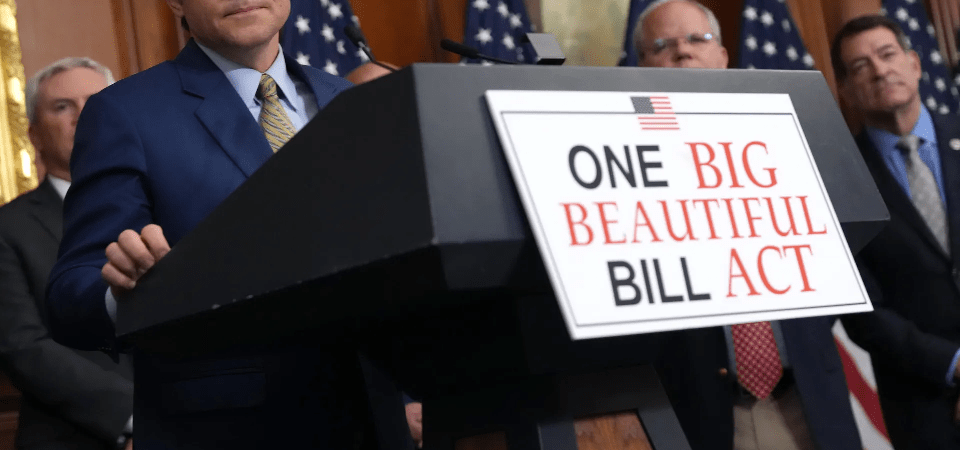
Trump’s ‘Big, Beautiful Bill’ Would Decimate Professional Gamblers – Literally
If US President Donald Trump's "big, beautiful bill" were to pass in its current form, professional gamblers' lives would be devastated.
By restricting the amount of losses that professional gamblers can deduct, a late-stage addition to the massive government spending measure that was approved by the Senate this week would drastically increase taxes for them.
As long as their losses don't exceed their overall gambling revenue, US gamblers are currently able to subtract losses from their gains. However, only 90% of those losses will be deducted under the new law, so even gamblers who break even on paper may still have to pay a hefty tax charge.
How Do Gamblers Get Hurt by Big, Beautiful Bill?
Let's take a simpler approach. A hypothetical gambler who wins $100,000 and loses $100,000 in a year and breaks even under the law now pays nothing. Since only $90K of their losses could be written off under the new regulations, they would have to pay $10K in taxes.
In the end, it makes it more difficult to make money, which puts a great deal of strain on a field that is already unstable.
In addition to being detrimental, the proposed tax adjustment will literally destroy the careers of professional gamblers. The word "decimate" comes from the Latin decimatus, which means "to destroy one-tenth." In the past, Roman legions would undergo this cruel punishment to punish troops who had exhibited cowardice, desertion, or rebellion.
In this instance, the government would tax money that doesn't exist by essentially taking away 10% of gamblers' deductible losses.
Vice President JD Vance gave the deciding vote when the bill narrowly passed the Senate on Tuesday, 51–50. The House, which approved its version of the bill in May, will now consider it. The gaming amendment is notably absent from the House version, which creates the conditions for a battle over the bill's final wording.
Phantom Income
Poker pro Phil Galfond cautioned in a video uploaded to X that the shift would cause taxes to be due on "phantom" income, which would disproportionately harm professional and high-volume players.
"Let’s say that over the course of all the sessions that we played throughout the year, we won $5.2 million and we lost $5 million dollars for a net of $200,000,” Galfond said.
“Now, we would pay as if we won $5.2 million, minus 90 percent of $5 million, which is $4.5 million for a fake net of $700,000… So you would make $200,000 during the year and pay tax as if you made $700,000.”
Gambling Misconceptions
The amendment's opponents claim it misunderstands the nature of professional gambling and runs the risk of driving talented players out of the US market, which is regulated. According to Galfond and others, the increased tax burden would persuade gamblers to use offshore sites that don't offer the same consumer protections or help the US government with its tax collection.
Although lobbying is probably already underway to stop the resolution in the House, the American Gaming Association (AGA), which reported $114.6 billion in US gaming revenue for 2024, has not yet issued a public remark.
The amendment would go into effect in the 2026 tax year if it were passed into law. The House will have to either approve or reject the Senate's version until then. The gambling industry is currently keeping a careful eye on things and preparing.











